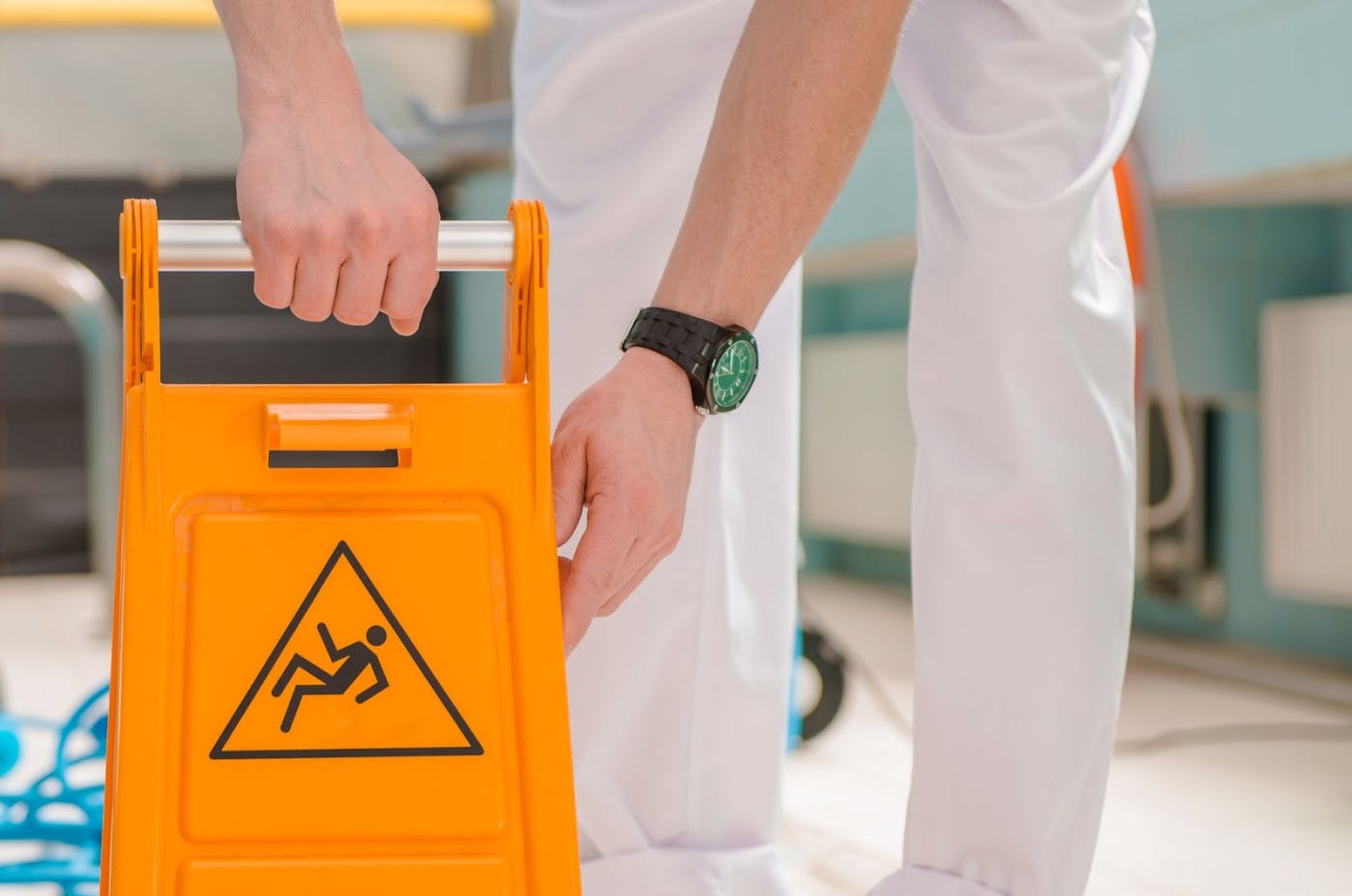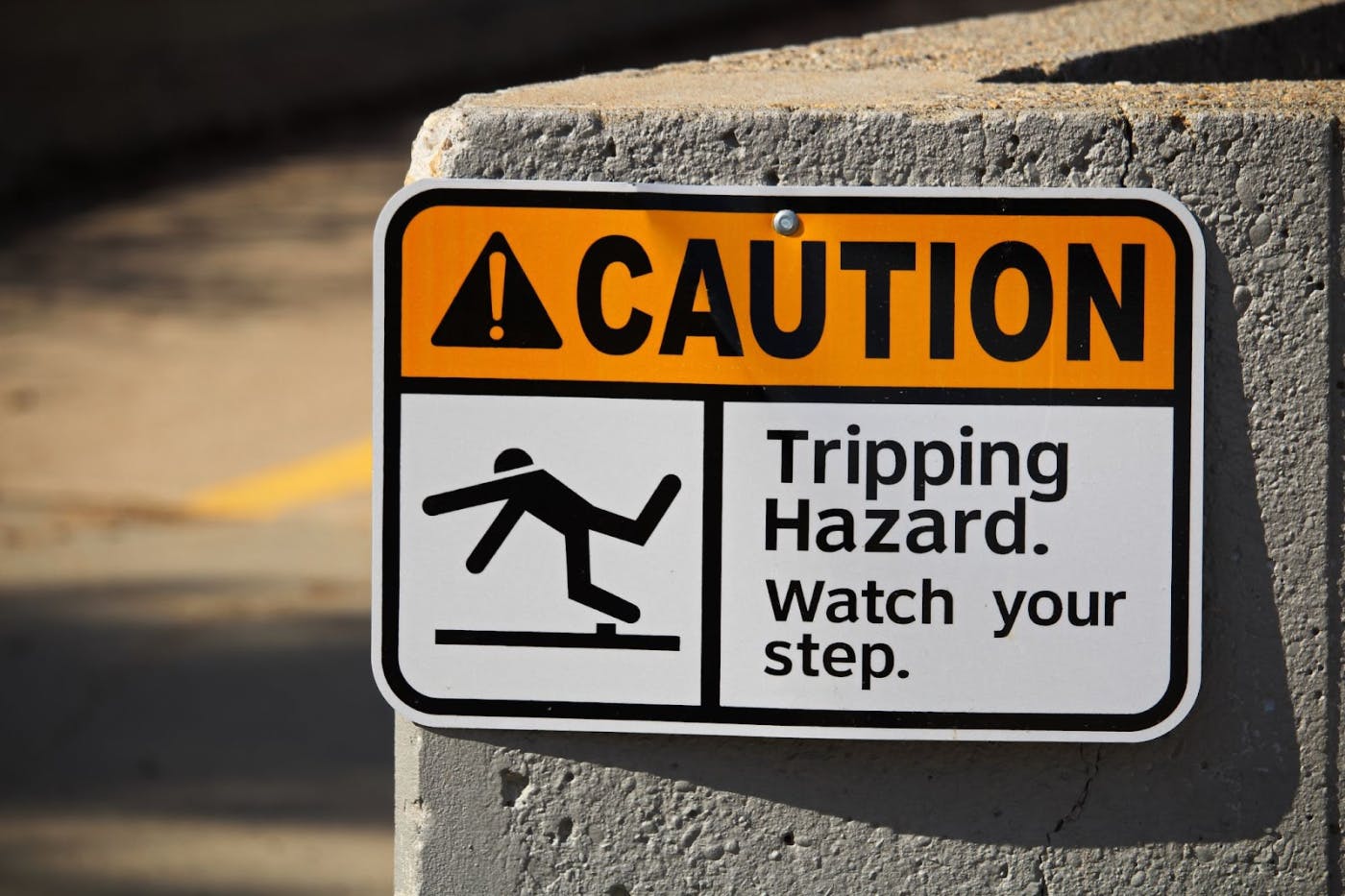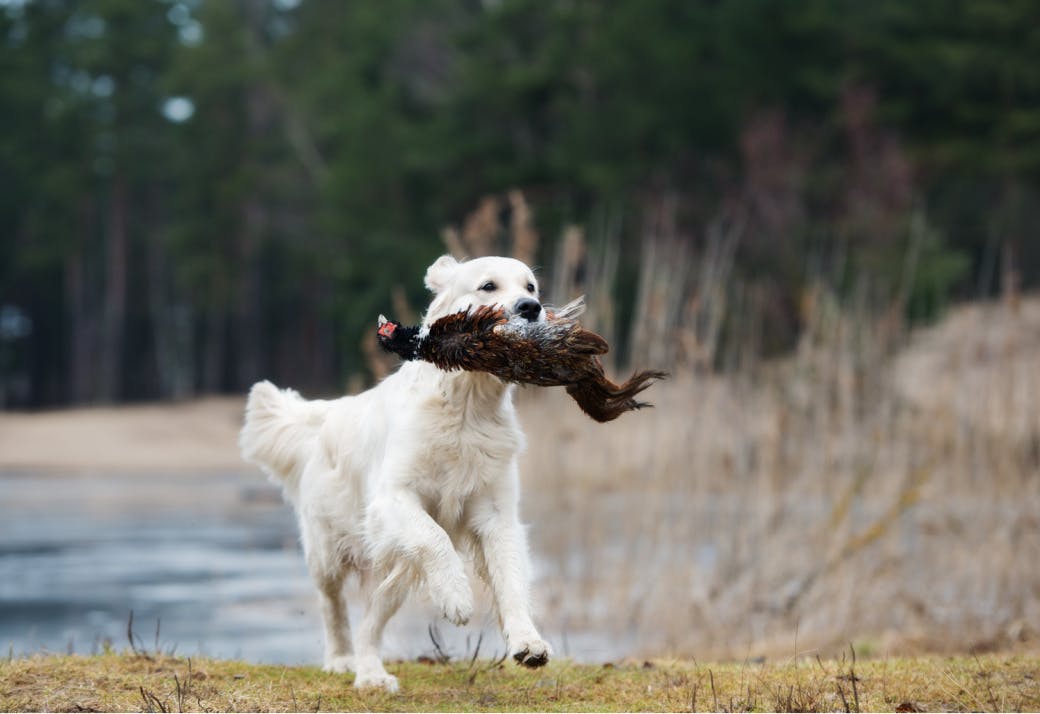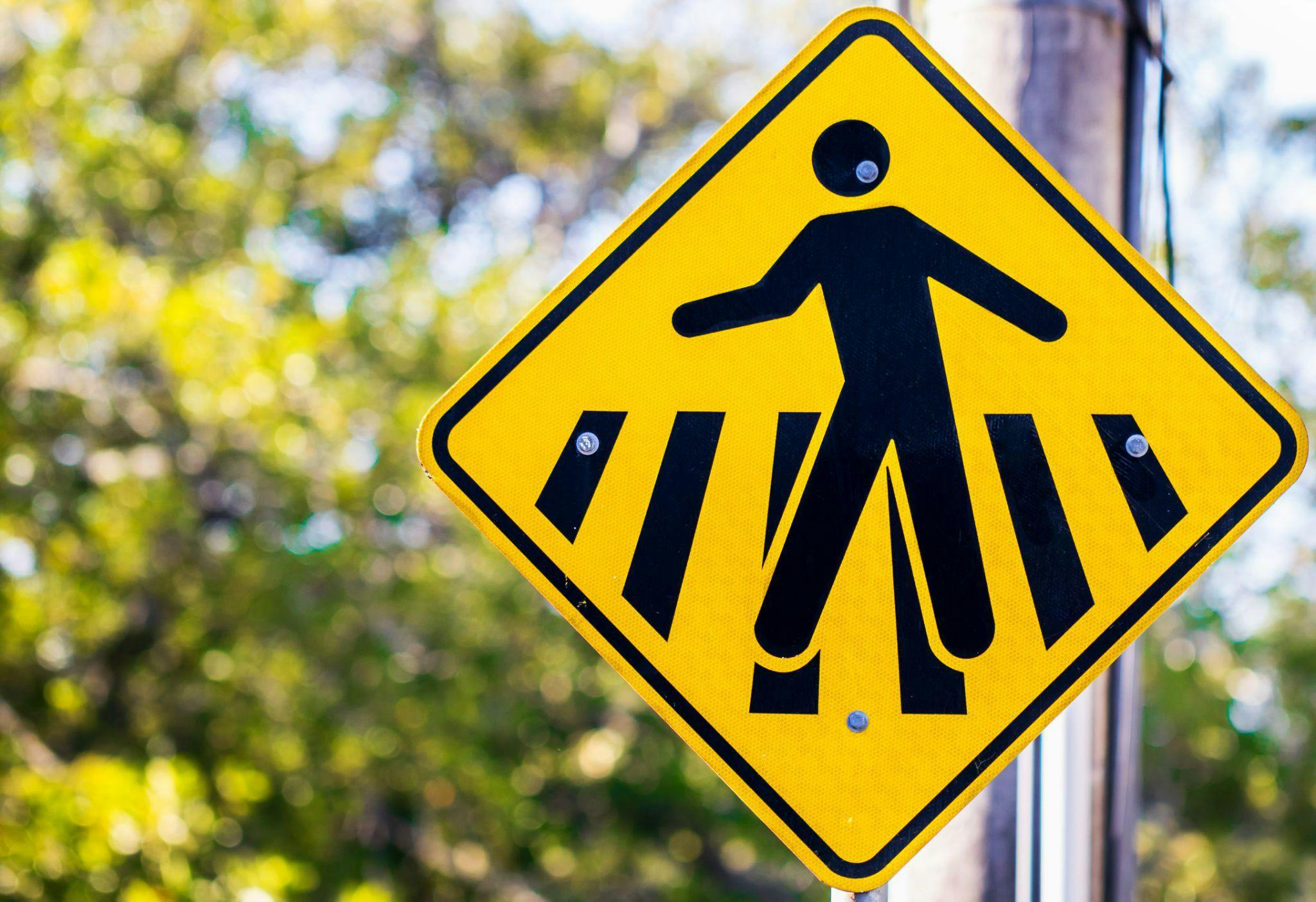Premises Liability: Do I Have a Case?

If you are injured on someone else’s property, you may have grounds for a premises liability claim. This area of the law will allow you to seek fair compensation for your injuries.
Here’s how to determine if you might have a valid case – and what steps to take next.
What Does “Premises Liability” Mean?
Premises liability means that Minnesota property owners have a responsibility to keep their properties safe for visitors. If they fail to do so, they can be held liable for any injuries that occur on their property. This applies to homes and businesses alike, and it can even apply to public property such as sidewalks, public parks, or playgrounds.
For example, if you slipped in a grocery store because the staff failed to clean up spilled liquid, you could have grounds for a claim. The same would be true if you fell in someone’s house because they didn’t warn you about a broken stair.
Other common causes of premises liability accidents include:
- Icy sidewalks or parking lots
- Poorly maintained buildings
- Cluttered floors
- Aggressive dogs
- Inadequate security at hotels and other commercial buildings
Determining Grounds for a Premises Liability Claim
The basis of any premises liability claim is establishing that the property owner’s negligence caused your injury. To do this, you must show that:
- The property owner did not take reasonable steps to ensure your safety (breach of duty)
- You are injured because of this failure (causation)
- You suffered loss because of this injury (damages)
Let’s look at another example.
A Minnesota snowstorm left a sheet of ice on the sidewalk and the steps to an apartment complex. Rather than clearing away the ice, the landlord left it as it was (breach of duty). Soon after, one of the tenants slipped on the icy steps and fell, injuring their back (causation). The tenant suffered great pain, missed work, and had to pay high medical bills to treat their injury (damages).
In this example, the tenant would have grounds to file a premises liability claim against their landlord.
Evidence Needed for Your Case
Even if a property owner is responsible for your injury, they may deny it. You’ll have to prove that their negligence was the cause of your accident. To do that, you'll need to gather evidence such as:
- Eyewitness testimony
- Photos of your injury and the accident scene
- Surveillance camera footage
- Incident reports
- Medical records
Your attorney will help you collect the evidence needed to support your claim.
Premises Liability Statute of Limitations
In Minnesota, the statute of limitations for filing a premises liability lawsuit is six years after the accident. However, you should speak to an attorney as quickly as possible. The sooner your attorney can investigate your accident, the easier it will be for them to build a strong case.
How Much Compensation Can You Claim for a Premises Liability Injury?
The compensation you can claim will depend on how severely the injury impacted your life. Common damages include:
- Medical expenses
- Lost wages
- Lost earning capacity
- Pain and suffering
- Property damage
Your attorney will help you calculate how much compensation you’re entitled to.
Premises Liability FAQs

What should I do after a premises liability injury?
- Seek medical attention immediately.
- Report the injury to the property owner or manager (if you haven’t already done so).
- Document everything, including taking photos and getting the contact information of any witnesses.
- Consult an attorney to get advice on what steps to take next.
Can I still claim compensation if I was partially at fault?
Yes. Minnesota follows a comparative fault rule. This legal phrase means you can receive compensation even if you were partially at fault for an accident or injury. However, your compensation may be reduced by the “percentage” of responsibility you bear.
For example, if you are entitled to $1,000,000 in compensation but found to be 25% at fault, you would receive $750,000.
Do I need a lawyer for my premises liability case?
While not mandatory, hiring a personal injury attorney is always wise. Minnesota personal injury law is complex. Your attorney can gather evidence, strengthen your case, and negotiate with insurance companies on your behalf. If necessary, they can represent you in court.
Will I have to go to court?
Probably not. Most personal injury lawsuits are settled out of court (95%, in fact!). It is unlikely you will ever need to take your case that far. If you do, your SiebenCarey attorney will be ready. We have represented many clients in jury trials and won successful verdicts on their behalf.
How long do I have to file a premises liability claim?
In Minnesota, you generally have six years from the date of the injury to file a premises liability lawsuit. But the sooner you start the process, the better. Acting quickly can help preserve evidence and strengthen your case.
What types of evidence are most important in premises liability cases?
Photographs of the hazard, surveillance video, witness statements, incident reports, and medical and maintenance records can be crucial evidence.
What if the property owner fixed the hazard after my injury?
You can still pursue a claim even if the property owner fixed the hazard after your injury. The condition at the time of the accident is what matters in establishing negligence.
How is compensation calculated in a premises liability case?
Compensation is typically calculated based on medical expenses, lost wages, pain and suffering, and any other costs directly related to the injury.
Can I file a lawsuit if I was injured at a friend’s house?
Yes, you can sue for injuries sustained at a friend’s house if their negligence caused the injury. Homeowner’s insurance covers these types of claims, so your friend will not have to pay you out of their pocket.
Can I file a claim if there were no warning signs for the hazard?
Yes, a lack of warning signs can strengthen your claim by demonstrating the property owner's negligence in warning visitors of the dangerous condition.
What if I fell because of bad weather conditions?
Property owners are often responsible for addressing hazardous conditions caused by weather, such as ice and snow. They may be liable for any resulting injuries if they fail to clear these hazards within a reasonable time.
Is there a difference between commercial and residential property liability?
Both commercial and residential property owners have a duty to maintain safe conditions, but the specifics of their liability can vary. Commercial properties may have stricter standards due to higher foot traffic and business operations.
Can I afford an attorney to help me?
Yes, you can! Most personal injury firms work under contingency fee arrangements, meaning their fee is contingent on winning your case. Until you receive your compensation, you won’t owe them anything. If you win, their payment is a percentage of your compensation package. You’ll never have to pay them out of pocket!
So, Do You Have Grounds for a Premises Liability Case?

To determine if you have a premises liability case, simply ask yourself these three questions:
- Were you injured on someone else’s property? (This can be personal property, business premises, or public property.)
- Did the negligence of the property owner cause the injury?
- Do you have evidence to support your claim, such as photos, witness statements, and medical records?
If the answer to all three is yes, you likely have grounds for a premises liability claim. Even if you don’t think you have grounds – or aren’t sure – always consult an attorney before giving up. An experienced professional can explain your rights and advise you on what steps to take.
Get Help from SiebenCarey – Minnesota’s Oldest Personal Injury Firm
If you are injured on someone else’s property, we can help you get the compensation you’re owed. SiebenCarey is the oldest law firm in Minnesota, with 70 years of experience helping injury victims across the state.
When you let SiebenCarey help you with your case, you’ll get the full benefit of:
- Seven decades of proven success
- Comprehensive legal resources
- An entire team of lawyers, paralegals, and accident scene investigators
- The “Know Your Rights” guarantee of genuine care and clear communication
Best of all, we always work on a contingency fee basis. Until we win your case, you won’t owe us a dime!
Reach out today, and we’ll happily answer all your questions. Let’s talk!













